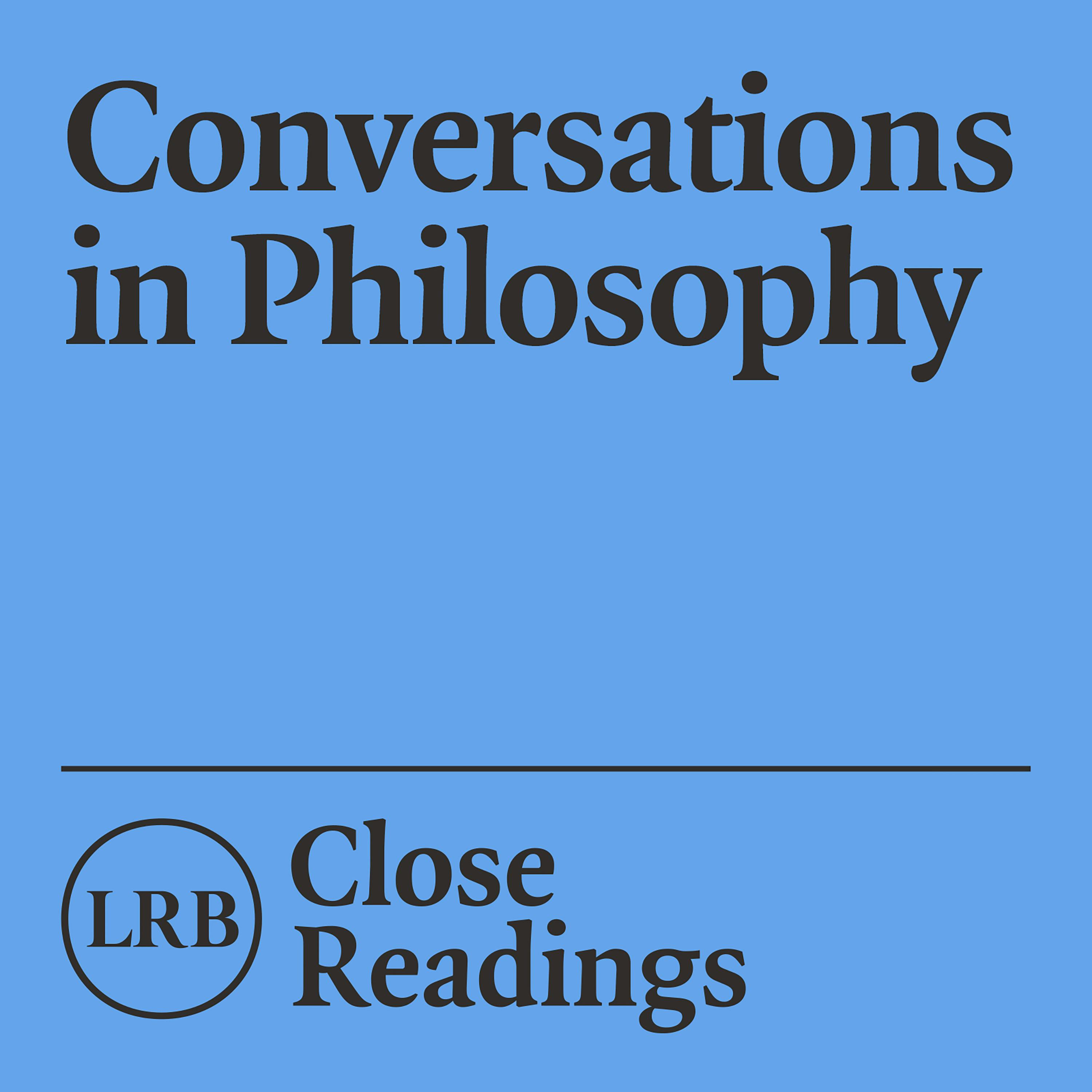Conversations in Philosophy

Conversations in Philosophy
Podcast Description
Jonathan Rée and James Wood challenge a hundred years of academic convention by reuniting the worlds of philosophy and literature, as they consider how style, narrative, and the expression of ideas play through philosophical writers including Kierkegaard, Mill, Nietzsche, Woolf, Beauvoir and Camus.
James Wood teaches literature at Harvard University and is a staff writer for The New Yorker as well as a contributor to the London Review of Books. His books include How Fiction Works, The Broken Estate and The Irresponsible Self.
Jonathan Rée is a frequent contributor to the London Review of Books and a freelance writer and philosopher. His most recent book on philosophy is Witcraft: The Invention of Philosophy in English.
Non-subscribers will only hear extracts from these episodes. To listen in full, and to all our other Close Readings series, sign up:
Directly in Apple Podcasts: https://lrb.me/applecrcip
In other podcast apps: https://lrb.me/closereadingscip
Get in touch: [email protected]
Podcast Insights
Content Themes
The podcast focuses on key philosophical themes explored through literature, examining works by thinkers like Kierkegaard, Nietzsche, and Woolf. Specific episodes discuss topics like the nature of emotions in Sartre's work, moral philosophy in Mill's Autobiography, and the existential inquiries in Heidegger's lectures, effectively merging literary analysis with philosophical discourse.

Jonathan Rée and James Wood challenge a hundred years of academic convention by reuniting the worlds of philosophy and literature, as they consider how style, narrative, and the expression of ideas play through philosophical writers including Kierkegaard, Mill, Nietzsche, Woolf, Beauvoir and Camus.
James Wood teaches literature at Harvard University and is a staff writer for The New Yorker as well as a contributor to the London Review of Books. His books include How Fiction Works, The Broken Estate and The Irresponsible Self.
Jonathan Rée is a frequent contributor to the London Review of Books and a freelance writer and philosopher. His most recent book on philosophy is Witcraft: The Invention of Philosophy in English.
Non-subscribers will only hear extracts from these episodes. To listen in full, and to all our other Close Readings series, sign up:
Directly in Apple Podcasts: https://lrb.me/applecrcip
In other podcast apps: https://lrb.me/closereadingscip
Get in touch: [email protected]
In 1908, Virginia Woolf wrote that she hoped to revolutionise the novel and ‘capture multitudes of things at present fugitive’. ‘To the Lighthouse’ (1927) marks perhaps her fullest realisation of the novel as philosophical enterprise, and not simply because one of its central characters is engaged with the problem of ‘subject and object and the nature of reality’. In the final episode of their series, Jonathan and James consider different ways of reading Woolf’s great novel: as a satirical portrait of her father through Mr Ramsay, as a study of creative expression through Lily Briscoe, or as a mystical, Platonic quest in which form and style respond to philosophical propositions, and the truth of human experience is to be found in movement, conversation and laughter.
Non-subscribers will only hear an extract from this episode. To listen to the full episode, and to all our other Close Readings series, subscribe:
Directly in Apple Podcasts: https://lrb.me/applecrcip
In other podcast apps: https://lrb.me/closereadingscip
Read more in the LRB:
Jacqueline Rose: Where’s Woolf? https://lrb.me/cipep13woolf1
Virgina Woolf: The Symbol https://lrb.me/cipep13woolf2
John Bayley: Superchild https://lrb.me/cipep13woolf3

Disclaimer
This podcast’s information is provided for general reference and was obtained from publicly accessible sources. The Podcast Collaborative neither produces nor verifies the content, accuracy, or suitability of this podcast. Views and opinions belong solely to the podcast creators and guests.
For a complete disclaimer, please see our Full Disclaimer on the archive page. The Podcast Collaborative bears no responsibility for the podcast’s themes, language, or overall content. Listener discretion is advised. Read our Terms of Use and Privacy Policy for more details.